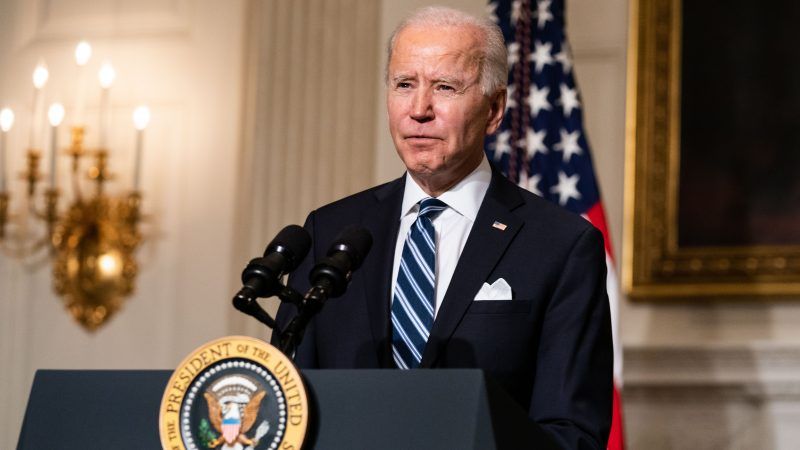Biden Tells Federal Bureaucrats To Approve Regulations With Benefits That Are 'Impossible To Quantify'
Biden has also moved quickly to remove some oversight that limited the growth of the regulatory state.

President Joe Biden has moved swiftly to rev up the regulatory state by weakening oversight and effectively ending a reality-based assessment of the costs and benefits of federal regulation.
It may have gone largely unnoticed amid a flurry of executive orders Biden has signed since taking office less than two weeks ago, but a January 20 memo from the White House to the "heads of executive departments and agencies" outlines a regulatory framework that will empower federal bureaucrats to count unquantifiable "benefits" when weighing the potential impact of new regulations.
Specifically, Biden instructed those officials to revamp their regulatory review processes to "promote public health and safety, economic growth, social welfare, racial justice, environmental stewardship, human dignity, equity, and the interests of future generations." The memo also states that the new regime "serves as a tool to affirmatively promote regulations."
Towards that end, Biden's memo says that his administration will alter the Office of Management and Budget's rules regarding regulations "to ensure that the review process…fully accounts for regulatory benefits that are difficult or impossible to quantify."
In other words, if a bureaucrat can conceive of a way that new regulations could advance the goals of racial justice or environmental health, those political aims should be counted as benefits—even if they can't, well, actually be counted.
That's a recipe for more regulation, and for a less honest assessment of which rules might be worthwhile and which merely make the appropriate gestures to a political agenda.
"The aim is to put weight on the scales of whether or not to regulate such that the answer will always be in the affirmative, replacing market operation and civil society with government in the pursuit of a range of non-quantifiable goals, even without legislation from Congress," says Clyde Wayne Crews, a vice president at the Competitive Enterprise Institute.
Biden's directive builds on a 1993 executive order issued by then-President Bill Clinton, which altered a Reagan-era directive ordering federal agencies to issue regulations only when the benefits exceed costs. Clinton shifted the standard to say that the benefits of proposed regulations must only "justify" the costs. Biden's memo suggests that his administration is prepared to inflate the definition of "benefits" to the point of making any cost/benefit analysis effectively worthless.
During his first week in office, Biden also abolished a Trump-era rule that imposed some measure of accountability on the federal bureaucracy. In 2017, President Donald Trump's Executive Order 13777 established regulatory reform officers and task forces at federal agencies. Their job was to ensure compliance with Trump's other regulatory reforms—including the famous "one-in, two-out" order, which mandates that two regulations be removed for each new rule that was imposed.
While the Trump administration did plenty to grow the size of government during its four years in power—including a gigantic hike in federal spending and expensive new tariffs on many imported goods—the one-in, two-out regulatory policy was a success from a small-government perspective. According to Crews, who has been tracking the size and power of the federal regulatory state for decades, the Trump administration actually revoked about 3.2 regulations for every new one approved.
Biden wasted no time in scrapping those Trump-era changes, not just removing the "one-in, two-out" policy but also gutting the extra layers of accountability that the administration imposed on the regulatory approval process.
If Biden was serious about modernizing regulatory review in a fair way, that oversight could provide important insight. Removing it suggests that to Crews that Biden is preparing "a new architecture for never-ending, endless regulations."
It hasn't taken very long for the Biden administration to demonstrate why it's not enough for Republicans and conservatives to merely roll back the administrative state when they take control of the White House. As soon as a Democrat takes over, those changes can be quickly wiped away. Serious, lasting reform will require congressional action.
Meanwhile, get ready for the regulations to start spewing forth from Washington once again.


Show Comments (141)